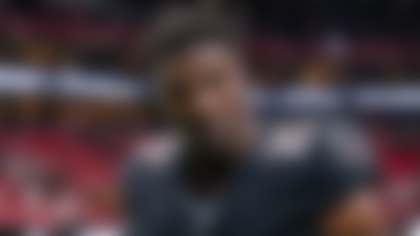- The National Operating Committee on Standards for Athletic Equipment (NOCSAE) has clarified its position regarding voiding of certification for helmets to which third-party after-market products have been affixed. Instead of automatically voiding the certification -- the position it took just three weeks ago -- NOCSAE now will leave it up to helmet manufacturers to decide whether or not a particular third-party add-on affixed to the helmet, such as a impact sensor, voids its certification. The clarification comes in the wake of criticism by third-party after-market equipment manufacturers of NOCSAE's original ruling, particularly from those who make lightweight impact sensors, and some safety advocates, including MomsTEAM's Brooke de Lench.
- "The Smartest Team," an hour-long documentary designed to help football programs and athletes play safer and smarter, will have its world broadcast television premiere on the stations of the Oklahoma Educational Television Association (PBS) on Wednesday, Aug. 14 at 10 p.m. CT. Produced and directed by youth sports parenting expert, author and MomsTEAM founder and publisher Brooke de Lench, the movie documents how de Lench worked with a high school in Newcastle, Okla., to address the challenges concussions pose in football. It will appear on PBS stations across the country in September and October.
- An important and well-established part of an assessment for concussion on the sports sideline under the most recent guidelines is to test an athlete's orientation to time and place by asking the so-called "Maddocks questions." Because they can be asked by anyone, the questions are particularly valuable when no health-care professional trained in performing a full sideline screening for concussion, such as doctor or certified athletic trainer, is present, as often is the case in contact and collision sports involving younger athletes.
- In another of MomsTEAM's series of videos featuring Dr. Bill Meehan, Director of the Sports Concussion Clinic at Boston Children's Hospital, Dr. Meehan outlines the four criteria that should be met before an athlete is allowed to return to play after a concussion.
- The not-so-surprising finding of new study is that, while the culture of sport (including influences from professional and other athletes), as well as the media and other outside sources, play a role in the decision of student-athletes to report experiencing concussion symptoms, it is coaches and teammates, along with parents, who have the strongest influence on an athlete's decision to report a concussion during sport participation. MomsTEAM's Brooke de Lench discusses the important role coaches play in creating an environment for athletes which rewards positive concussion-care seeking behaviors such as reporting an injury or removing one's self from play when experiencing concussive symptoms, including being understanding and supportive when an athlete reports concussive symptoms and is unable to continue playing, especially in front of other athletes.



